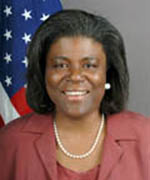A recent Washington Post op-ed, penned by no less than Tom Pickering, a Foreign Service legend — a former Under Secretary for Political Affairs (P) and multiple times an ambassador — questions a “new” habit of placing political appointees into high-level, even mid-level positions at State. “The Foreign Service is being relegated to a secondary status,” according to Pickering and his co-authors.
The phenomenon of “political” ambassadors is not new, and the percentage has hovered between 40 and 60 percent since Jimmy Carter’s days in the White House. Most FSOs hate the patronage system, correctly pointing out that it decreases the number of chief of mission openings for career officers overseas and staffs missions with less qualified U.S. representatives.
But I’m not so dead-set against political ambassadors.
I think there have been excellent White House-selected ambassadors — Mike Mansfield and Howard Baker to Japan. Sure there are a lot of duds and junk car kings who jet off to Europe and farther afield with no greater qualifications than bundling millions of campaign dollars for President Obama. But I myself had the opportunity to work with two recent political appointees in Africa — Alonso Lenhardt (Tanzania) and Don Gips (South Africa). Both were top-notch, and in fact far superior to some of the career officers running missions on the continent. I think allowing outsiders into the ranks prevents the inbreeding that dilutes effective relationships and policy.
Pickering and his co-authors highlight the dangers with stacking the upper ranks (Assistant Secretary or higher) and mid-level positions (Office Directors, Deputy Office Directors):
- Political appointees are short-term officials;
- They are subject to partisan, personality specific pressures;
- The patronage system “does not notably contribute to [State’s] long-term vitality
- This situation spawns opportunism and political correctness, weakens esprit de corps within the service and emaciates institutional memory.
Heady prose, indeed.
In closing the op-ed, the authors also take a poke at the Civil Service employees at the State Department with a damning indictment. The growth of the Civil Service system has hurt the , Foreign Service — “The department has distinctly different systems, and the result has been an increasingly fractious and dysfunctional corporate environment, draining energy and focus… if the [growth of the civil service] is not reversed, the United States will lose the invaluable contribution of people with overseas experience.”
Pickering’s recommendation — State’s “civil service personnel system must be adapted to conform more closely to the requirements of professional diplomacy.” Ouch!
I have problems with this op-ed because 1) it seeks to build up the Foreign Service, by trashing political appointees and civil servants, and 2) it’s near hysterical tone weakens its arguments and makes FSOs sound like whiners. These are chronic issues and a “Chicken Little” approach doesn’t provide the concrete steps on how to change the personnel system. Or, frankly, whether it needs to be changed at all.
What do you think? I welcome your comments.

Recent Comments